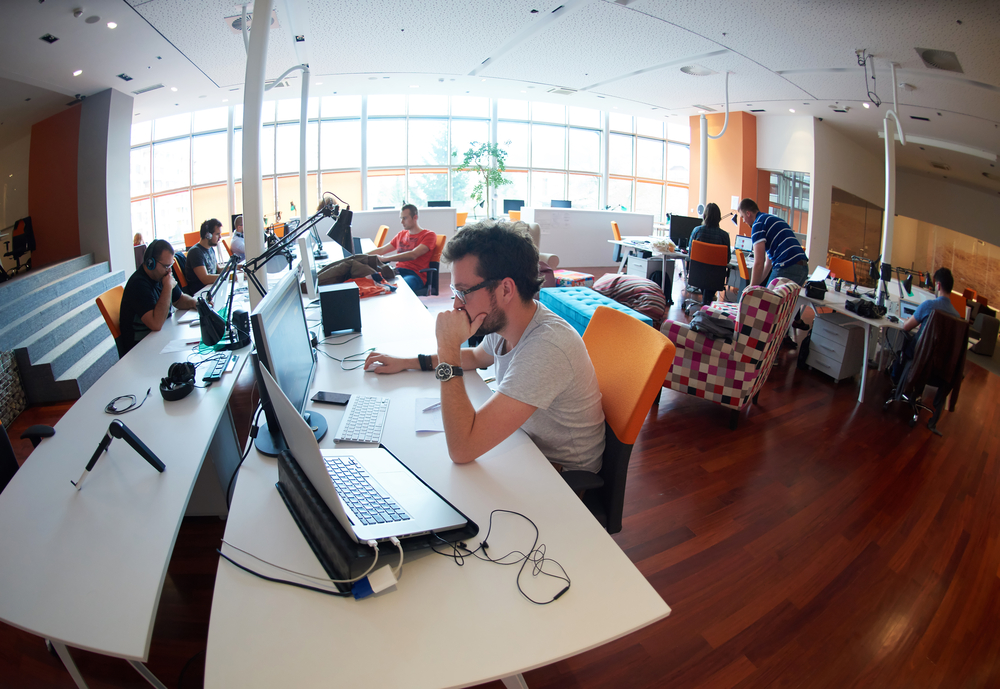Irish Venture Capital Association director-general Sarah-Jane Larkin tells John Kennedy how Ireland needs to get better at engineering an entrepreneurial, risk-taking culture.
Whatever way you look at it, it is both the best of times and the worst of times to be an entrepreneur in Ireland or in Europe, generally. From a funding perspective, investments are happening but the whole allure of entrepreneurship and risk-taking is fading in the face of full employment and an enduring accommodation crisis.
According to recent figures from the Irish Venture Capital Association (IVCA) and William Fry, venture capital funding in Ireland fell 41pc year-on-year to €197m in Q1 2019. This is mainly because last year’s Q1 figures were buoyed up or distorted by two bigger-than-average rounds raised by Dublin’s Intercom (€101m) and Limerick’s AMCS (€100m).
“We need to take some kind of revolutionary action to increase the number of people who are willing to take risks”
However, if you strip out those two mega deals, growth would have been 50pc. This is critical because the Irish venture capital community continues to be a fundamental source of investment in innovative Irish SMEs. Some 75 Irish companies received start-up or follow-on funding compared to 43 a year earlier. There was a strong rebound in seed funding with investment in early-stage firms up 23pc to €17.8m and an increase in the number of smaller deal sizes in the €1m to €5m category, up from 36 to 66 year-on year. Unsurprisingly, life sciences and software dominated the overall funding levels, accounting for 47pc and 33pc of funds raised respectively.
For Sarah-Jane Larkin, director general of the IVCA, the two mega deals were brilliant in terms of putting Irish-based tech firms on the global map. “These were brilliant and significant but are still very far away from your 10 to 50-employee company in Ireland trying to do business. At the end of the year there was this rebound in seed investment. But our investors in seed will still say there is a real lack of start-up funding that needs to be tackled.”
According to Larkin approximately 60pc of venture capital money in Europe comes from government sources. This is also very true in Ireland through the activities of Enterprise Ireland, which earlier this year launched its new €175m Seed and Venture Capital Scheme for 2019 to 2024.
Engineering an entrepreneurial culture
Larkin pointed out that while such government-backed schemes are crucial, there is still work to be done on policy to make it attractive for individual investors to invest in young companies. “Some of the individual policies just aren’t there,” she said referring to failure to make significant changes in areas such as capital gains tax and other entrepreneurial reliefs that just aren’t as internationally attractive, compared with those in the UK for example.
“The Government of Ireland needs to be looking at better ways to enable companies that are less than three years old or pre-revenue. There should be a very different risk and reward structure than you currently have for an asset-backed wind farm or through the current Business Expansion Scheme-Employment Incentive and Investment Scheme (BES-EIIS).”
Crucially, policy needs to be geared toward ensuring the Irish economy is firing on all cylinders and that start-ups and SMEs have a fighting chance.
“On the policy side, if you look at the Irish Government’s tax take, more than 55pc comes from corporation tax and a huge proportion of that comes from 10 multinationals. That’s great when the sun is shining and money is coming in, but we really need to be creative and look at ways we can use a budget surplus to boost the indigenous economy because there will come a time when we can’t just depend on FDI (foreign direct investment). The nature of the Irish economy and the dynamics and the players will change. Seed and institutional investment players need to incentivise investment in small and medium companies and this is something I feel our Government should strive for.”
Critically, Larkin pointed to a drop in investment in the €5m to €10m bracket. “Overall, the entire year was down by 70pc and the decline was driven by a fall-off in funding in that bracket.
“This raises questions as to whether our companies are scaling fast enough, is growth slower than they would like and are they selling out too early? If they are putting in the hard yards and it is hard to get investment to get a 10-year-old company to continue with a view to being worth €100m, then appetite will decline. It is difficult to access money. What we would see is a need for more throughput, a stronger entrepreneurial culture to be really creatively engineered by Government policy.”
Larkin pointed to comments made earlier this year by Dómhnal Slattery, founder and CEO of Dublin-based aircraft leasing giant Avolon, calling on the Irish Government to develop a tax structure that allows entrepreneurship and risk-taking to flourish.
“It raises important questions, for example, why do successful start-up founders end up investing in property rather than other companies?” Larkin asked. She makes a good point. At its height Irish company Iona Technologies was responsible for spinning out at least 20 other companies while in Silicon Valley, companies pride themselves on the number of other companies’ employees go on to start.
Entrepreneurship in Ireland is also challenged by ongoing problems such as the cost of living. “Our young people are faced with the stark choice of starting up, working for an indigenous company or taking a secure job with a multinational. Is there an appetite amongst people to take their chances?”
Looking ahead, Larkin predicts that venture capital investment levels are likely to increase. “Those green shoots will continue to emerge but the bigger question is will this be enough.”
Again, she urged action around policy failures in the areas of capital gains tax and the floundering KEEP initiative which aimed to create an employee share ownership culture in Irish firms.
Both capital gains tax and Ireland’s friends and family investing scheme BES-EIIS is completely outmoded by more advanced policy and structures like the UK’s EIS-SEIS (Seed Enterprise Investment Scheme) which actually encourage tech founders to invest in other tech founders.
“In the UK the lifetime limit for capital gains tax is £10m, here it is €1m. You cannot in all conscience say that this makes Ireland a better place to have a really successful business. If someone cashes out with €1m that is fantastic but where are they going to set up their next business, because it is not going to be Ireland.”
The issue runs far deeper than just start-ups, it includes vital areas such as management buyouts and succession planning for family businesses. “We need to look at models where private equity would make it easier for a first generation to exit and pass the reins over to a new generation and encourage them to take on the business. This could be ideal for companies that have been going for a number of years and private equity structures could tie in with debt-financing from a bank, for example.
In conclusion Larkin said it is time to look at creative ways of encouraging entrepreneurship, such as creating potential tax breaks that enable executives at SMEs or multinationals to take six months or a year out of their permanent role to start a business.
“We need to cultivate an image of a country that says ‘we back start-ups’. We need to create incentives that encourage individuals to take risks and I feel we don’t have that balance in the country right now.
“We need someone across this at Government level. There is a willingness to want to support indigenous industry, but what is need is a holistic view of what it takes, and a real Government aim to get to grips with all of it in a high-growth economy where it is hard for people to take chances.
“We need to take some kind of revolutionary action to increase the number of people who are willing to take risks,” Larkin said.
Written by John Kennedy
Published: 4 July 2019
Pictured: Sarah-Jane Larkin. Image: Irish Venture Capital Association





